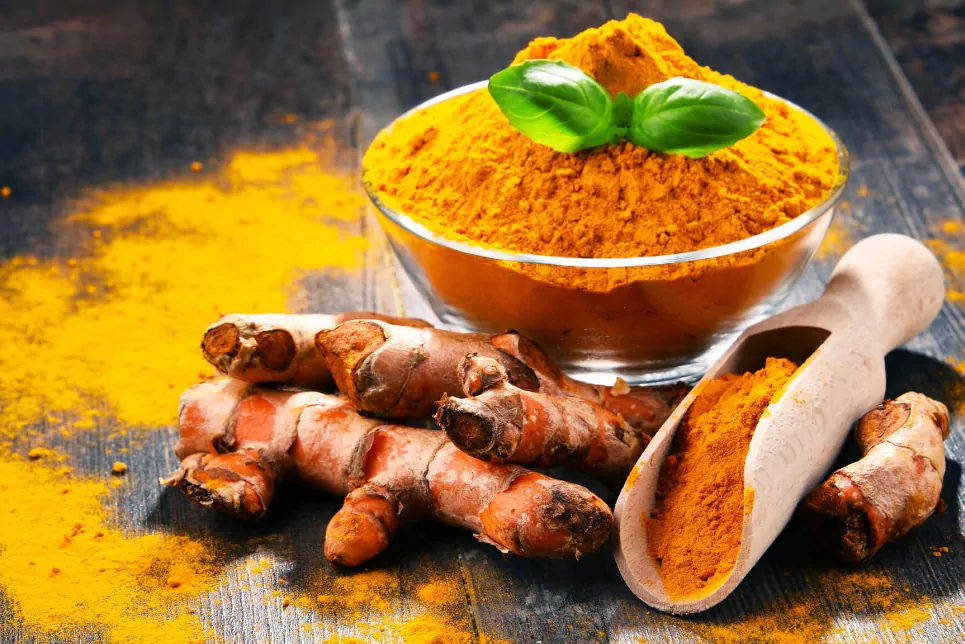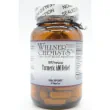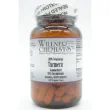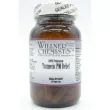Turmeric: A Natural Solution for Post-Exercise Muscle Pain

Key Takeaways
Turmeric's role in muscle health:- Reduces Inflammation: Decreases production of inflammatory cytokines.
- Natural Analgesic: Alleviates post-exercise muscle soreness.
- Antispasmodic Agent: Relaxes muscles and prevents spasms.
- Aids Recovery: Supports muscle repair and regeneration.
Article by Arnie Gitomer Apr 20, 2023
With summer rapidly approaching, many people are looking to boost their physical activity to get back in shape and be ready for summer fun. But with more exercise, it’s relatively easy to experience more significant inflammation and muscle soreness. Turmeric is an excellent option for reducing muscle pain and aiding in recovery.What is Turmeric?
Turmeric is a spice native to Asia. It has been used for millennia as a medicine due to its many health benefits. Turmeric is part of the ginger family of plants. The roots are boiled, dried, then ground into an orange powder.While turmeric has a long history of use for its beneficial health effects, it has also been well-researched for several decades, and several studies have proven that turmeric is an effective treatment for muscle pain.
The active ingredient in turmeric is a phytochemical called curcumin. This compound has excellent antioxidant and anti-inflammatory properties. However, while it has long been used in Asia as a spice that supports good overall nutrition, it has only recently attracted attention in the West to treat health conditions and muscle soreness.
Curcumin supplementation alone cannot address muscle damage and pain. It is lipophilic, meaning it needs fats to dissolve and be absorbed into the bloodstream. Combining turmeric with healthy fats, such as plant oils or avocadoes, is a great way to increase its effectiveness. Taking turmeric with black pepper is also a great way to help absorption since the piperine in black pepper can make curcumin more effective.
How Does Turmeric Help with Muscle Pain?
Multiple herbal and pharmacological properties in turmeric can help your muscles after exercise. These benefits include:In addition to providing broad health benefits, turmeric has few side effects or risks and can aid in weight loss. While taking it in large quantities can result in stomach pain or sickness, following the recommended amount daily reduces this risk. And in many instances, turmeric is a safer alternative than prescription painkillers or over-the-counter analgesics.
Turmeric can reduce inflammation.
Inflammation in the muscles is related to increased inflammatory cytokines. Turmeric decreases the production of these inflammatory agents like prostaglandins and interleukins. These benefits result in reduced inflammation and pain.
Turmeric is a natural analgesic.
Since turmeric reduces inflammation, it can also reduce pain associated with post-exercise muscle soreness. In addition, it suppresses COX-2, the same compound blocked when taking non-steroidal anti-inflammatory drugs. It is an effective alternative with few risks.
Turmeric is a natural muscle relaxer.
Several studies have confirmed that turmeric is an antispasmodic agent which can relax the muscles and prevent muscle spasms. High doses of curcumin can relax the muscles with the same level of effectiveness as diazepam, a strong pharmacological muscle relaxer. Turmeric achieves this by reducing the blockage in the calcium channel. Calcium ions link proteins present in the muscle when stimulated by neurons, and this movement leads to muscle contraction. Curcumin recaptures these calcium ions and releases the proteins, which allows the muscle to relax.
Turmeric can relieve delayed onset muscle soreness.
Delayed onset muscle soreness (DOMS) is pain and stiffness when individuals are unaccustomed to strenuous exercise. A study determined the effect of topical turmeric on DOMS. The local application of turmeric with an ice pack was more effective than the application of ice alone at reducing muscle soreness and swelling. It achieved this by lowering histamine levels involved in the allergic and inflammatory responses and helping the adrenal gland secrete hormones that reduce inflammation.
Turmeric addresses muscle damage and aids in recovery.
Intense exercise often leads to muscle damage, which helps your muscle fibers redevelop stronger. However, proper nutrition and rest are usually required to recover. Turmeric may help reduce recovery time by quickening muscle recovery and regeneration.
Turmeric can also help with many other health issues
- Arthritis, or the inflammation of joints and connective tissue
- Asthma, or the inflammation of the lungs
- Colitis, or the inflammation of the bowels
- Hepatic cirrhosis, or the inflammation of the liver
- Pancreatitis, or the inflammation of the pancreas
- Cholangitis, or the inflammation of the bile ducts
- Inflammation of the gallbladder
- Ulcerative colitis or Crohn’s disease
- Eczema, psoriasis, and other inflammatory skin diseases
- Reducing the risk of heart disease by lowering cholesterol levels and improving circulation
- Fighting cancer cells
- Improving joint function for those with osteoarthritis
- Reducing the risk of stroke by lowering the levels of blood clotting factors
- Improving memory for those with Alzheimer’s, Parkinson’s, or other forms of age-related dementia
- Improving cognitive function
Turmeric is a powerful way to address muscle pain, damage, and inflammation. It is also easy to find and use and cost-effective, making it an ideal supplement to support overall health and keep you exercising.
 |
Read more about Arnie Gitomer |
Product Search Results

|
Turmeric Am Relief vCap | Willner Phyto Tech | $18.98 | 68218 |

|
Turmeric Ext 450 mg | Willner Phyto Tech | $24.84 | 60137 |

|
Turmeric Pm Relief vCap | Willner Phyto Tech | $18.98 | 68217 |
